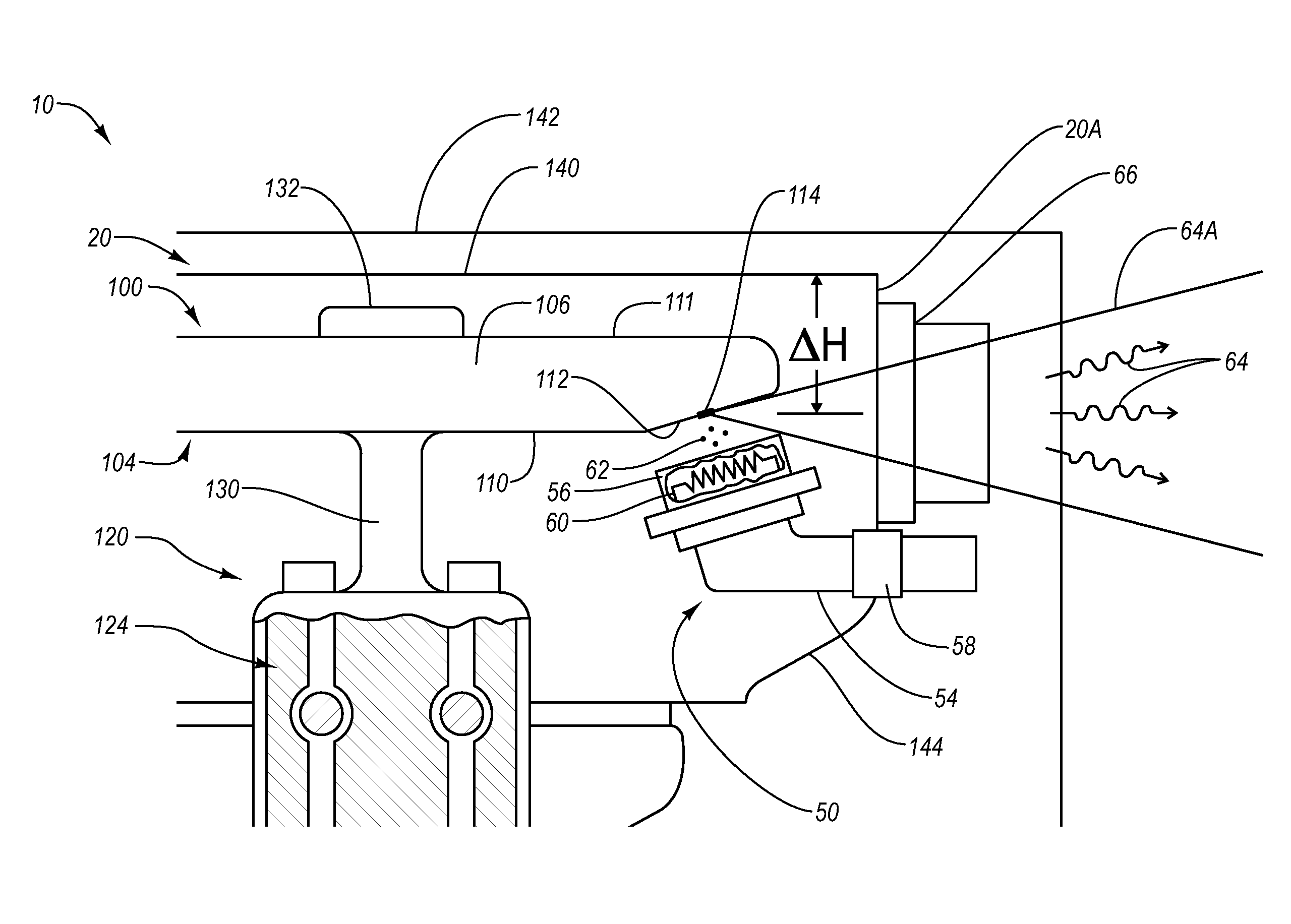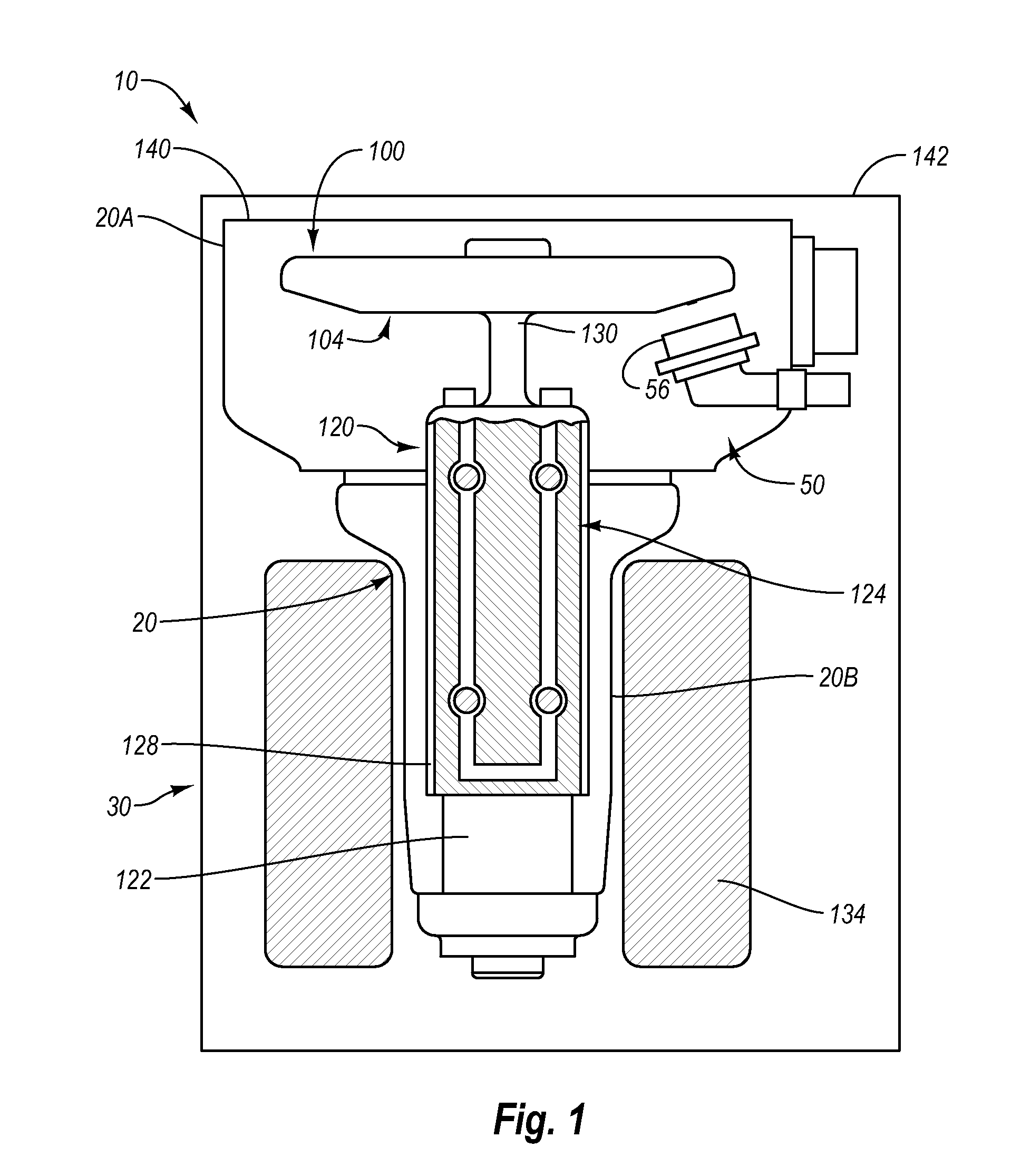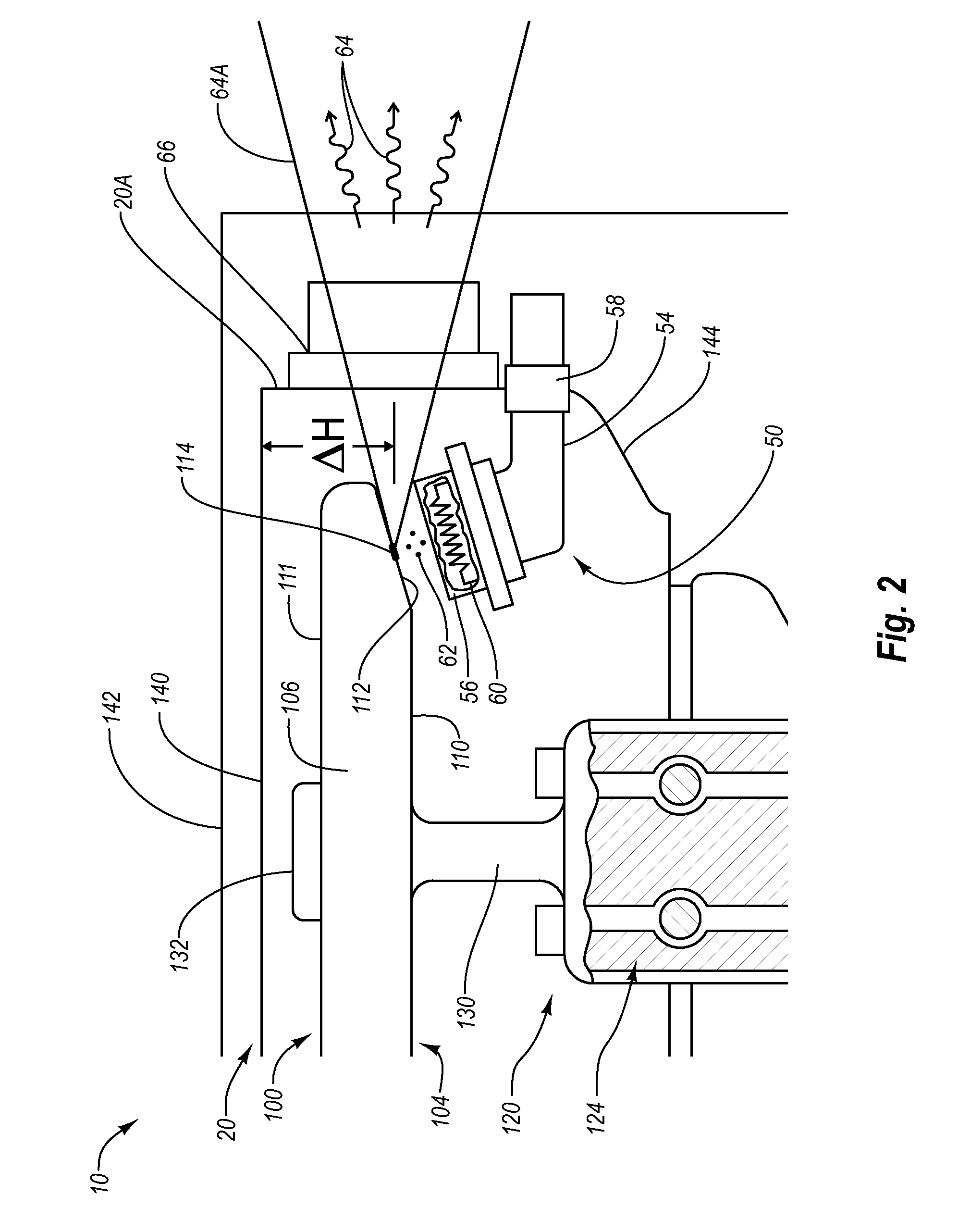X-ray tube having a focal spot proximate the tube end
a focal spot and x-ray tube technology, applied in the field of x-ray tubes, can solve the problems of exacerbated above imaging challenges of known tube designs, unconfigured tube designs that minimize the spacing between the chest wall, and suffer from image quality degradation, so as to reduce the spacing, improve tissue coverage, and reduce the effect of spacing
- Summary
- Abstract
- Description
- Claims
- Application Information
AI Technical Summary
Benefits of technology
Problems solved by technology
Method used
Image
Examples
Embodiment Construction
[0026]Reference will now be made to figures wherein like structures will be provided with like reference designations. It is understood that the drawings are diagrammatic and schematic representations of exemplary embodiments of the invention, and are not limiting of the present invention nor are they necessarily drawn to scale.
[0027]FIGS. 1-4 depict various features of embodiments of the present invention, which is generally directed to an x-ray tube configured in a manner so as to reduce the distance between an electron focal spot of the rotary anode and the nearest end of the x-ray tube. This configuration enables the x-ray tube to be placed relatively closer to the chest wall of a patient during mammography procedures, and thereby allows the central ray emitted by the tube to be substantially parallel to the chest wall. This configuration and placement results in improved mammographic imaging regardless of breast size, particularly because of the ability of disclosed embodiments...
PUM
 Login to View More
Login to View More Abstract
Description
Claims
Application Information
 Login to View More
Login to View More - R&D
- Intellectual Property
- Life Sciences
- Materials
- Tech Scout
- Unparalleled Data Quality
- Higher Quality Content
- 60% Fewer Hallucinations
Browse by: Latest US Patents, China's latest patents, Technical Efficacy Thesaurus, Application Domain, Technology Topic, Popular Technical Reports.
© 2025 PatSnap. All rights reserved.Legal|Privacy policy|Modern Slavery Act Transparency Statement|Sitemap|About US| Contact US: help@patsnap.com



